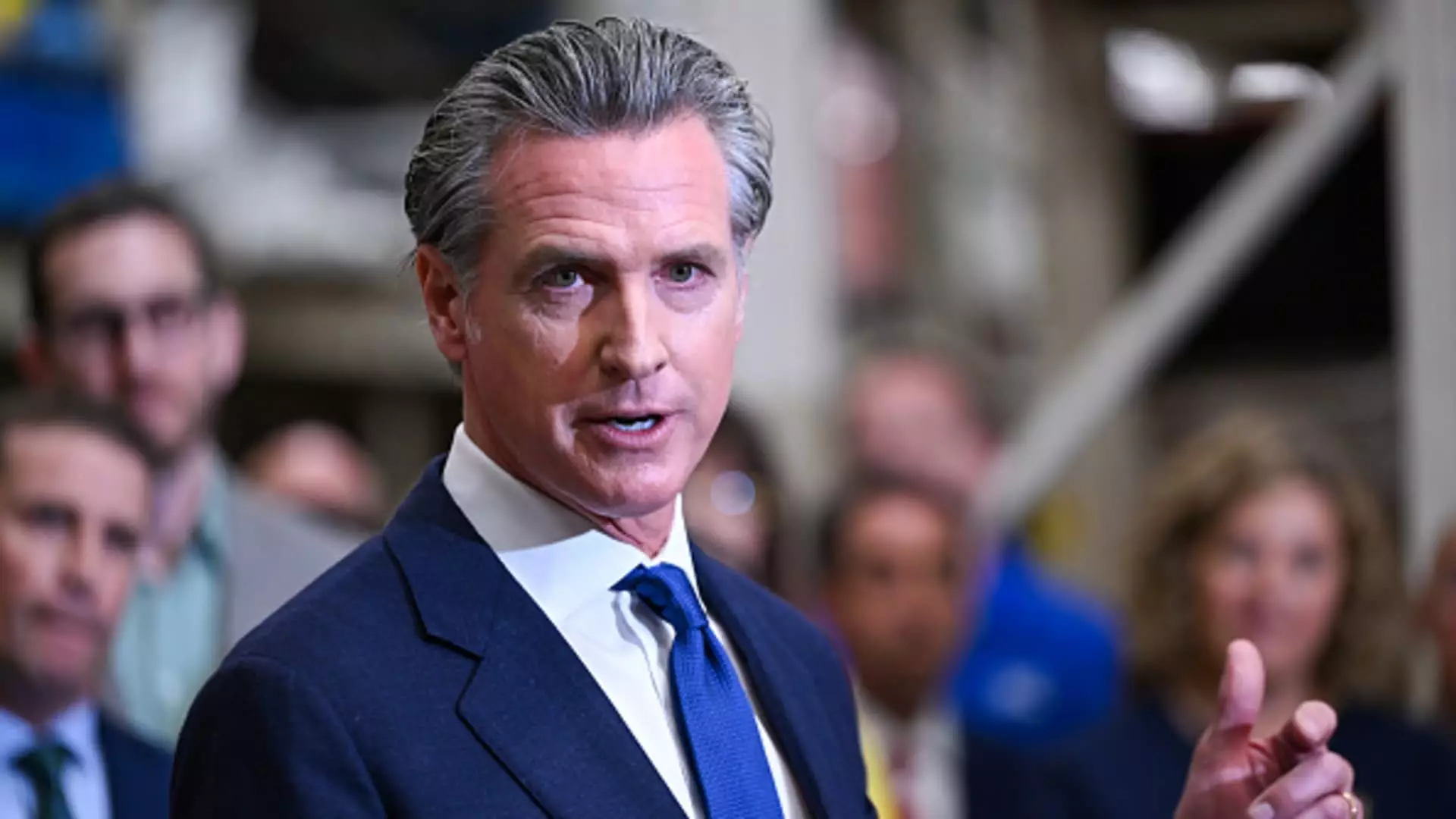As the political landscape shifts with the impending Trump administration, California finds itself at a crossroads, poised to confront potential federal overreach. Governor Gavin Newsom has convened a special legislative session aimed at preemptively safeguarding the rights and resources of the Golden State. This initiative, commencing Monday, reflects Newsom’s resolve to protect California from perceived threats posed by the new federal government, especially concerning reproductive rights and environmental regulations.
In an announcement from the governor’s office, Newsom outlined plans to establish a litigation fund of up to $25 million. This fund is designed to bolster California’s legal capabilities in anticipation of policy changes that may adversely affect the state’s interests. The anticipation of impending legal battles underscores not just the magnitude of the challenges ahead, but also the proactive stance California aims to adopt in the face of a federal administration that often champions contrasting values.
Newsom’s strategy appears to be a direct response to the electoral outcome that positioned Trump back in power. The governor’s assertion that California must “assert ourselves” serves as both a rallying cry and a pragmatic warning that the state must remain vigilant against policies that could undermine its progressive ethos.
It’s important to recognize the historical context in which this legislative session is unfolding. Trump’s first term saw California’s Department of Justice engage in a staggering 122 lawsuits against the federal government, a reflection of the intense ideological rift between the state and the Trump administration. While these battles resulted in substantial financial recoveries for the state, they also highlighted California’s determination to resist policies perceived as harmful.
The proposed litigation fund aims to provide similar resources for the forthcoming legal confrontations. By channeling state funds to support court challenges, California not only signifies its readiness for a protracted struggle but also potentially sets the stage for a broader battle over state rights versus federal authority.
Moreover, the dynamics between the state and the incoming administration reveal a multifaceted relationship. Newsom has expressed a willingness to collaborate with Trump, emphasizing a desire for the administration to succeed “in serving all Americans.” Yet, he also makes it clear that California will not stand idly by in the face of policies that threaten the rights and freedoms of its residents.
The recent election results in California indicate an intriguing shift within the traditionally blue state. While Trump garnered significant support among voters, the election also saw conservative candidates winning key positions in major counties. This duality presents a complex picture. On one hand, the influx of conservative voices in significant district attorney races reflects a growing dissatisfaction with the status quo in urban politics. On the other hand, the adoption of harsher penalties for certain crime categories showcases an electorate prioritizing safety and fiscal concerns over more progressive social reforms.
This evolving political landscape further complicates Newsom’s challenge as he seeks to unify a state with diverging interests. The backing of moderate candidates and a rejection of proposals to raise the minimum wage suggest Californians are placing immediate economic concerns at the forefront. Consequently, Newsom must navigate this complicated terrain, balancing the progressive agenda of his base while acknowledging the shifting tide of public sentiment.
As the special session unfolds, the implications of California’s legislative actions resonate beyond state borders. The outcomes of these discussions may serve as a blueprint for other states grappling with similar concerns regarding federal governance. California’s capacity to confront federal policies could inspire movements across the nation, signaling a rising tide of state-level resistance against perceived overreach.
Furthermore, this situation underscores the evolving nature of governance in a polarized America. The diverging paths of state and federal authorities suggest that resistance may become a defining characteristic of contemporary political interactions. As Newsom prepares California for potential confrontations, the responses and strategies employed will not only affect the state’s residents but may also shape political dialogue nationwide.
California’s proactive stance under Governor Newsom provides a compelling glimpse into the intricacies of state-federal relations. As the special legislative session unfolds, its outcomes will undoubtedly influence California’s trajectory, making it a focal point of resistance amidst the complexities of American governance. This moment stands as a testament to the resilience and determination of a state ready to defend its core values against evolving challenges.


Leave a Reply